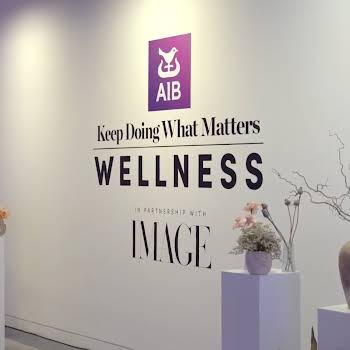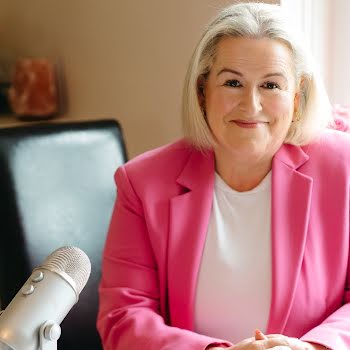
Spiritual bypassing: are you using spirituality to avoid facing your issues?
By Niamh Ennis
25th Jan 2024
25th Jan 2024
'Spiritual bypassing' was coined in the 1980s by the late transpersonal psychologist and Buddhist teacher John Welwood as the ‘tendency to use spiritual ideas and practices to sidestep or avoid facing unresolved emotional issues, psychological wounds and unfinished developmental tasks.’
If you have even a passing interest in spirituality the chances are high that you may have come across the term spiritual bypass. But do you know what it actually means? I must confess that, for years, I misunderstood its real meaning and made the false assumption that it referred to avoiding anything relating to spirituality. It doesn’t.
The term itself was coined in the 1980s by the late transpersonal psychologist and Buddhist teacher John Welwood, who describes it as the ‘tendency to use spiritual ideas and practices to sidestep or avoid facing unresolved emotional issues, psychological wounds and unfinished developmental tasks.’
My personal preferred definition is this – “spiritual bypass, to use spiritual terms to bypass challenges, real-life occurrences or how someone feels”.
It’s definitely fair to say that we all have those parts of ourselves that often we deny, intentionally avoid or would just rather not look at. Yet when we try to bury them rather than process, integrate or resolve them; they have the potential to show themselves in some of our more dysfunctional behaviours. What that in turn prevents happening is the required healing which ultimately causes more damage to ourselves and to our relationships. Even when we commit to doing the work and go about immersing ourselves in the world of self-help and personal development we can still successfully manage to avoid having to deal with our own deep emotional anguish. Does this sound at all familiar?
You buy book after book, listen to every podcast, sign up for an endless supply of programmes and workshops and follow the teachings of some high-profile gurus; all the while believing that this is how you should do the work, but along the way your focus shifts to the doing rather than being, the learning rather than actioning. Knowing what to do is a world away from doing anything about it and it is here to my mind that spiritual bypassing lives.
We also look to alternative ways in which we can stay distracted from what needs to take place by using food, alcohol, drugs, sex, work, and shopping; each of these allows us to continue on in a state of denial while our deep-rooted emotional wounds worsen and eventually show themselves in areas of our lives such as our relationships, friendships and our own feelings of self-worth and value. What complicates this even further is when we unconsciously distance ourselves from understanding what it was that happened in the first place to make us feel like this.
Some signs of emotional bypassing include;
- Being unable to focus on the present; relinquishing all responsibilities in favour of the spiritual world.
- Hiding behind a schedule of ‘spiritual practices’ whilst avoiding confronting the learnings they uncover.
- Acting self-righteous and superior about the concept of awakening and displaying signs of entitlement.
- Believing that traumatic events should always serve as “learning experiences” or indeed that there is a silver lining behind every single negative experience.
- Over emphasis on the positive and total avoidance of the negative.
- Behaving in an overly detached manner and pretending that everything is alright when clearly it is not.
- Projecting your own negative feelings onto others.
- Thinking that people can overcome their problems through positive thinking.
How can I know if I am spiritually bypassing?
In the face of adversity, if you are prone to saying these things, it’s possible that you might even be engaging in it. Have you heard yourself say things like ‘Everything happens for a reason’ or ‘Positive thoughts only!’, ‘It was probably for the best’ or ‘What’s for you won’t pass you by. If you’re nodding while reading this then you’ve entered into the world of bypass!
Next time, before succumbing to uttering similar platitudes, stop and ask yourself if your comment is really helping. Is it offering comfort to someone else, or is it just your way of dismissing an awkward situation so that you will feel better?
The source
At its best, spiritual bypassing is a self-defence technique; protecting you from things that can feel just too painful to deal with. The real question, however, is at what cost to you? When you ignore the core issues, or source, of your discomfort, you can actually compound it further, by denying its existence.
If you’re experiencing pain or hurt and you don’t acknowledge or deal with it, the bad news is that it won’t go away and instead will wait however long it takes until you’re ready to face it. This is why it can often feel like pushing a rock up a hill and dealing with your own inner challenges. It’s important to note though, that this kind of pain is cumulative so by side-stepping it you’re simply postponing handling it.
The true impact of spiritual bypassing
In the last decade, I’ve noticed a significant increase in online spiritual narcissism – presenting itself in the use of spiritual practices as a way to increase one’s own self-importance and status. “I’m better than you because I’m more spiritual than you!” is used by some as a way to build the individual up while also at the same time using it as a weapon to tear others down. This is dangerous and egotistical in the extreme.
Your connection with something greater than yourself is intensely personal and really needs to be carefully preserved. It can give your life greater depth and meaning and also point you in the direction of your purpose. But remember, above all else, that no other person on this earth has the right to tell you how to behave, to feel or to think in the name of spirituality– so stand firm, hold your ground and don’t let them!
Niamh Ennis is Ireland’s leading Change & Transformation Coach and author of Get Unstuck who through her private practice, writings, programmes, workshops and podcast has inspired, activated and helped thousands of people to make significant changes in their lives. She is an accredited Personal, Leadership & Executive Coach and the Lead Coach in the IMAGE Business Club. Niamh is currently accepting applications to her RESET for Change 1-1 Programme starting in September. Follow her on Instagram @1niamhennis or niamhennis.com.
This article was originally published in July 2023.























